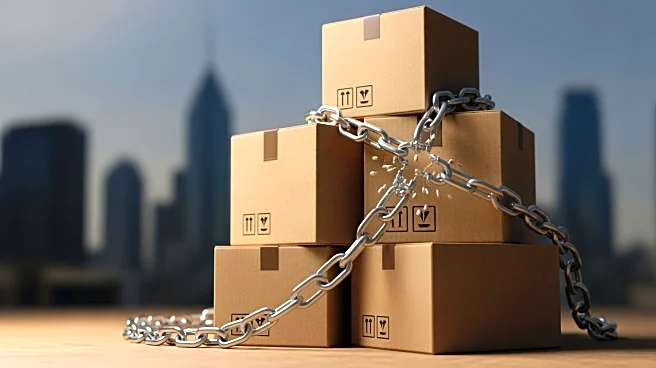What's Happening?
UPS is experiencing significant challenges with customs clearance due to U.S. import regulations, leading to delays in shipments. The company reports that over 90% of imported packages clear customs on the first day, but issues persist, particularly with tariffs.
A notable problem is the 200% tariff rate on Russian aluminum, which has confused customers who did not import metal from Russia. This situation underscores the complexities and frustrations associated with current import regulations and tariffs. Consumers are facing unexpected costs and delays, as seen in cases where shipments are held or abandoned due to customs issues.
Why It's Important?
The impact of tariffs on U.S. consumers is becoming increasingly apparent, affecting both prices and the ease of international shipping. The end of the de minimis loophole, which previously exempted shipments under $800 from tariffs, has led to increased costs for consumers. This change is causing confusion and frustration, as individuals must navigate complex tariff regulations and potentially act as customs brokers for their orders. The broader economic implications include potential inflation and disruptions in the supply chain, affecting businesses and consumers alike.
What's Next?
As the holiday season approaches, businesses and consumers may face further challenges with international shipments. Companies might need to adjust their pricing strategies to account for tariffs, and consumers may seek alternatives to purchasing goods from abroad. UPS and other shipping services will likely continue to address these issues, potentially leading to changes in how tariffs are applied or communicated to customers. Stakeholders, including businesses and policymakers, may need to consider solutions to mitigate the impact of tariffs on the economy.
Beyond the Headlines
The ethical and legal dimensions of tariff enforcement are significant, as consumers struggle with unexpected costs and complex regulations. The long-term effects could include shifts in consumer behavior, with more individuals opting to buy domestically to avoid tariff-related complications. Additionally, businesses may need to reevaluate their supply chains and sourcing strategies to minimize tariff impacts, potentially leading to broader economic shifts.















